Magnesium: One of the Most Crucial Minerals
As one of the main minerals in your body, magnesium is involved in numerous crucial actions. Magnesium is the fourth most abundant mineral in the human body. In reality, magnesium is essential for the survival of ALL of our cells.
Without enough magnesium, you’ll feel exhausted because your cells will not be able to perform the important functions in your body.
Magnesium water is something that you can include on a daily basis along with consuming plenty of bioavailable magnesium-rich foods and rubbing magnesium lotion on your feet.
As we covered in our magnesium lotion article, there are around 11 different forms of magnesium, however, they are not created equal. Some of the forms of magnesium are more absorbable (AKA bioavailable) than others.
Magnesium bicarbonate is the form of magnesium that is in “magnesium water”. It is a rather quick and easy way to get magnesium into your bloodstream within minutes, particularly if you hold the water under your tongue for a few seconds before swallowing.
Making magnesium water is extremely SIMPLE. The recipe is towards the end of the article.
Let’s learn a little bit more about magnesium AND bicarbonate first though.
Magnesium Benefits
The benefits of magnesium are vast since it is involved in countless enzymatic processes in the human body. For a more detailed explanation of the benefits of magnesium, check out our article on magnesium and other key nutrients that boost energy.
- Improves Energy
- Lowers Inflammation
- Manages Nerve Function
- Manages Muscle Function
- Improves Fertility
- Decreases PMS Symptoms
- Improves Sleep
- Lowers Depression and Anxiety
- Improves Bone Health
- Improves Digestion
- Regulates Blood Pressure
- Lowers Blood Glucose
- Protein Synthesis
- Partners with Copper to Manage Iron
- Increases Activity of Glutathione (an important antioxidant)
- Reduces the Chance of Coronary Artery Disease
- Lowers Risk of Strokes
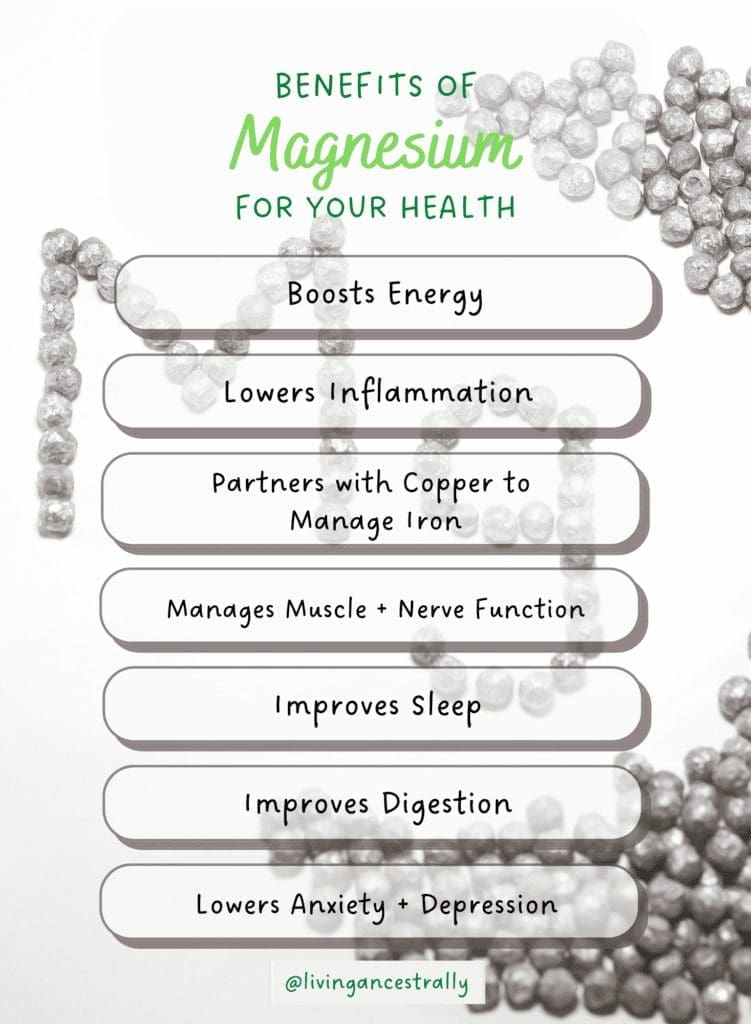
What is Magnesium Water?
Our drinking water (as well as the soil in which our food is grown), used to contain much more magnesium than it does nowadays. Magnesium bicarbonate (AKA “magnesium water” or “mag water”) is a form of magnesium that is considered to be highly absorbable.
In fact, magnesium bicarbonate water has been shown in research to increase serum magnesium in the study participants.
The bicarbonate part of the magnesium water neutralizes acidic waste inside the body. It’s an excellent way to buffer the acid in the body along with getting plenty of magnesium at the same time.
Our blood has an ACID-BASE BALANCE that is supposed to be held in check by three main systems in the body.
✔️ Respiratory System – our lungs remove excess carbon dioxide
✔️ Urinary System – the kidneys remove excess acids in our urine
✔️ Bicarbonate Buffering System – a system that helps to maintain a healthy pH in our body by buffering acid in our cells. However, our bodies need bicarbonate present in our body in order for this ultra important processes to work properly.
When our organs and bodies as a whole don’t work properly, these three systems also don’t work properly. Medications, inflammation, and a poor diet can interfere with our bodies properly removing or buffering acid in our bodies.
To achieve optimal health, our bodies must first be able to remove or buffer the acid that is in our bodies, which is one of the reasons that magnesium bicarbonate is at the top of my list when someone wants to improve their health. Making and then drinking magnesium bicarbonate water is a quick and easy addition to make to anyone’s health regimen.
The Importance of Bicarbonates
Bicarbonates are present in ocean water, rivers, and smaller streams. Bicarbonate is created in streams when water passes through limestone or dolomite rock formations. The natural minerals in these rocks are responsible for the creation of bicarbonate-rich water.
Ancestral people used to get their drinking water from these flowing streams and thereby had a lot more bicarbonate in the water that they drank. We don’t get our water from flowing streams anymore so bicarbonates are nearly non-existent in people’s drinking water nowadays. The majority of people get their drinking water from chemically treated water plants.

Bicarbonates are important to consume since they help to neutralize the acid in our bodies. Any change in our blood pH, either to be more alkaline or more acidic, can cause disease processes to occur within our bodies.
Sodium bicarbonate (traditionally known as baking soda) has been consumed for over a hundred years now with the purpose of increasing the ability of the blood and cells to buffer acid. Athletes use it to reduce soreness following workouts since it lowers lactic acid. They also consume it to reduce acidosis during exercise in order to boost exercise performance. Sodium bicarbonate has also been used to decrease heartburn and indigestion since bicarbonate ions pass through the bloodstream looking to exchange chloride ions in order to make hydrochloric acid (HCL) which aids in the digestion of your food. Therefore, drinking bicarbonate water (sodium or magnesium) on an empty stomach may help the body make HCL in the stomach.
According to Dr. Mark Sircus, sodium bicarbonate is not helpful because of the sodium that it contains, it is simply because of the bicarbonate. As already mentioned, bicarbonate is crucial for buffering acid. However, it is also crucial for delivering other minerals (like magnesium) into the cells.
It can be argued that magnesium bicarbonate is much more valuable to the body than sodium bicarbonate. First of all, most people get an adequate amount of sodium from their diet to meet their basic needs, however, magnesium is typically lacking in most people’s diets nowadays. Secondly, by consuming magnesium bicarbonate, you are still getting the crucial bicarbonate that your body needs in order to buffer the acid inside of it.
Why is There Less Magnesium in Our Water and Food?
Even just a generation ago, there was more magnesium in our drinking water and food.
What happened?!
Well, artificial and extremely toxic pesticides, herbicides, and fertilizers began to be used on a broad scale after WWII. Farmers realized they could significantly increase their crop yield by using synthetic chemicals.
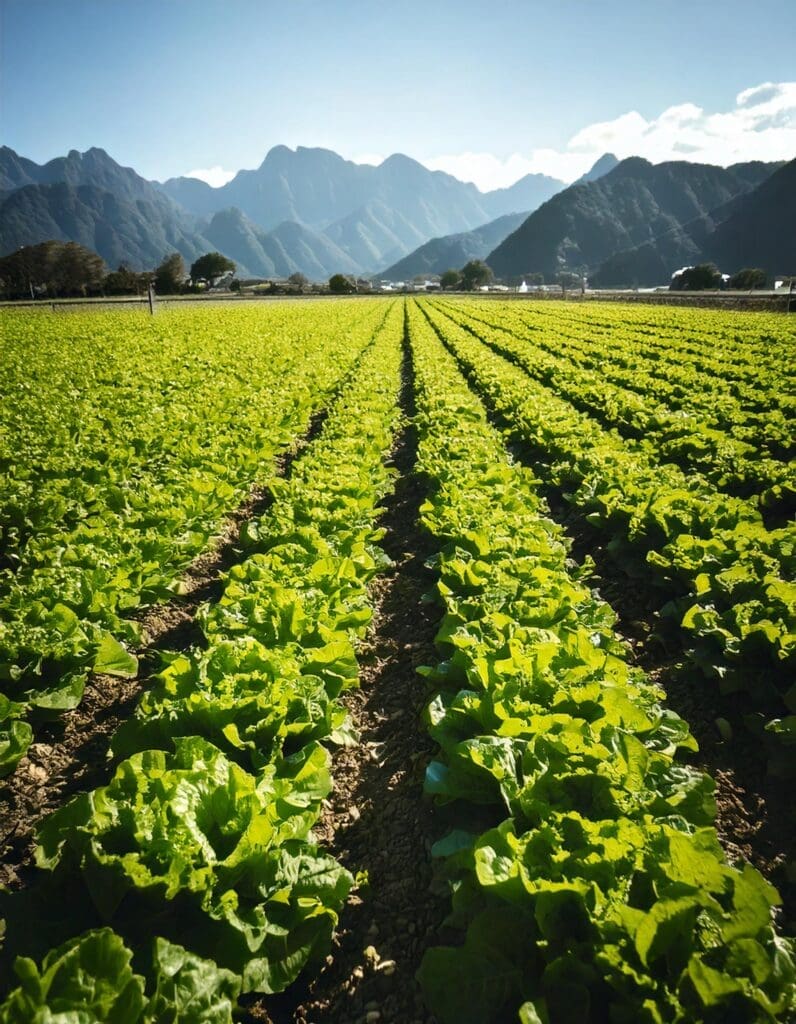
In the short term, that sounds great! Fewer “pests” on the crops means more food. However, in the long term, these synthetic chemicals have been linked to various health conditions in humans. They also have been shown in studies to affect wildlife which affects us all as a result. Reproductive health, behavioral changes, a decrease in certain animal species, and death have been linked to synthetic chemicals used by some farmers to increase their crop yield, as well as by cities trying to exterminate insects that cause vector-borne illnesses (like mosquitoes).
A top researcher on this topic, Dr. Donald Davis, made this comment regarding the issue of the modern farming industry altering the nutrients found in the foods since the introduction of synthetic chemicals.
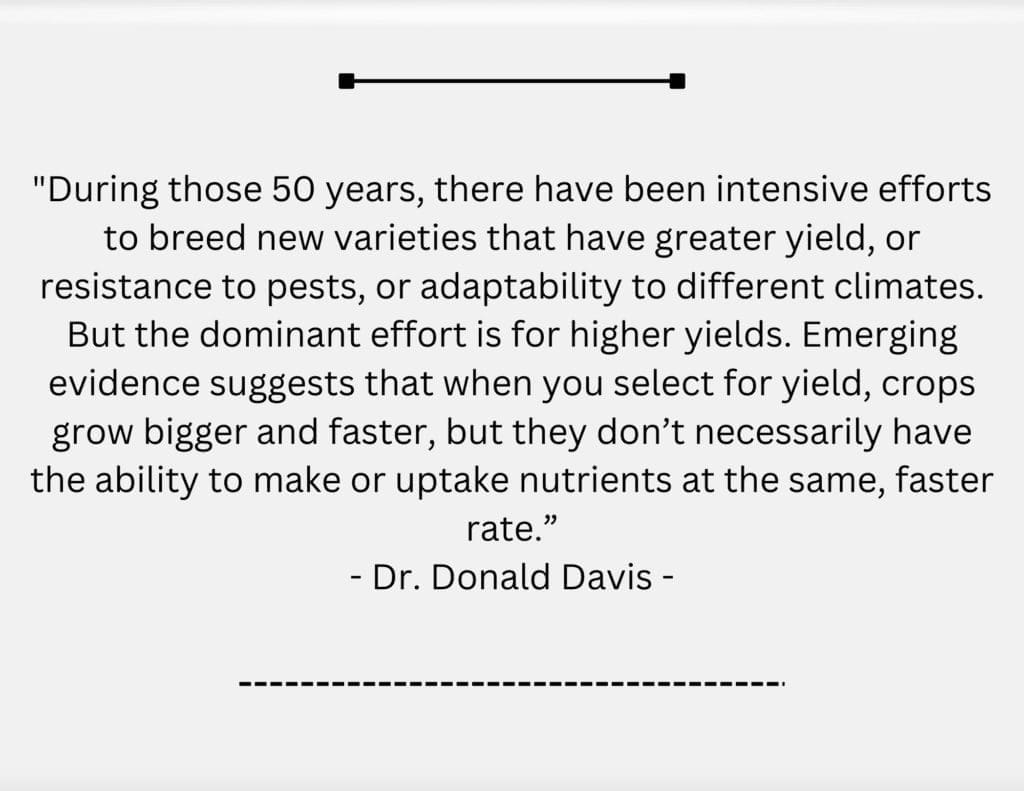
Tips for Making Magnesium Water
Magnesium water is one of the simplest things to make. Magnesium water can also be very energizing for most people. It may become one of the first things you reach for when you need an energy boost. Skip that coffee or tea!
There are many magnesium water recipes out there so feel free to do your own research and try one out until you find one that works best for you.
The sparkling water brand that we prefer to use and recommend to others in the magnesium water recipe is San Pellegrino because the calcium-to-magnesium ratio is 3:1 which is closer to the 2:1 calcium-to-magnesium ratio that we should be getting. San Pellegrino is also very easy for people to find in stores. Several of the other sparkling water brands have extremely high calcium-to-magnesium ratios. Some such as the popular Perrier have been reported to be as high as 147:3 which is way too much calcium per magnesium.
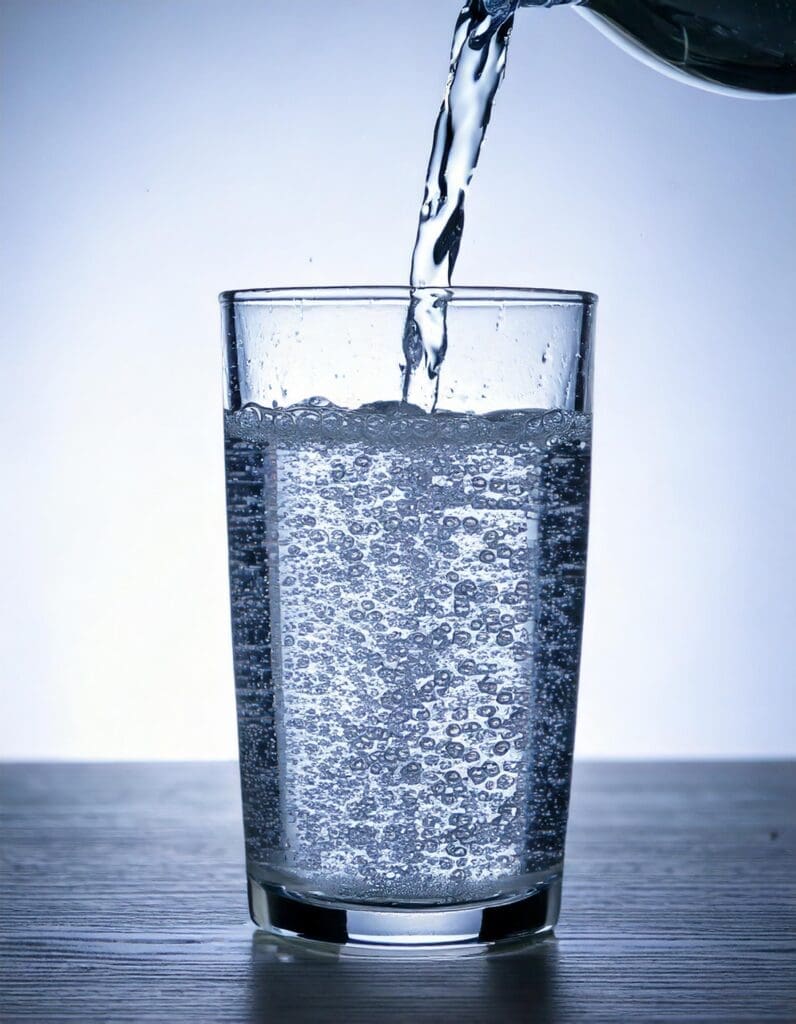
Keep in mind that the taste of magnesium water takes some getting used to. It has a very distinct taste that may or may not be preferable to some people.
It took our family a little while to get used to the taste. Once we make the magnesium water recipe, we fill up our water bottles halfway with it and then we use regular filtered water for the other half. We shake our water bottles and drink the magnesium bicarbonate water concentrate like that. We will do that several times a day until we have gotten all of the magnesium bicarbonate that we each need.
Another idea is to add magnesium water to some low-sugar or sugar-free homemade lemonade to help disguise the taste.
How Much Magnesium is in Magnesium Water?
The two options for making magnesium water are either magnesium oxide or Milk of Magnesia. The form of magnesium in Milk of Magnesia is magnesium hydroxide. Whereas, powdered magnesium oxide becomes magnesium hydroxide when it is put in water. Based on that, using either magnesium oxide or Milk of Magnesia is just fine. It’s mainly a matter of preference.
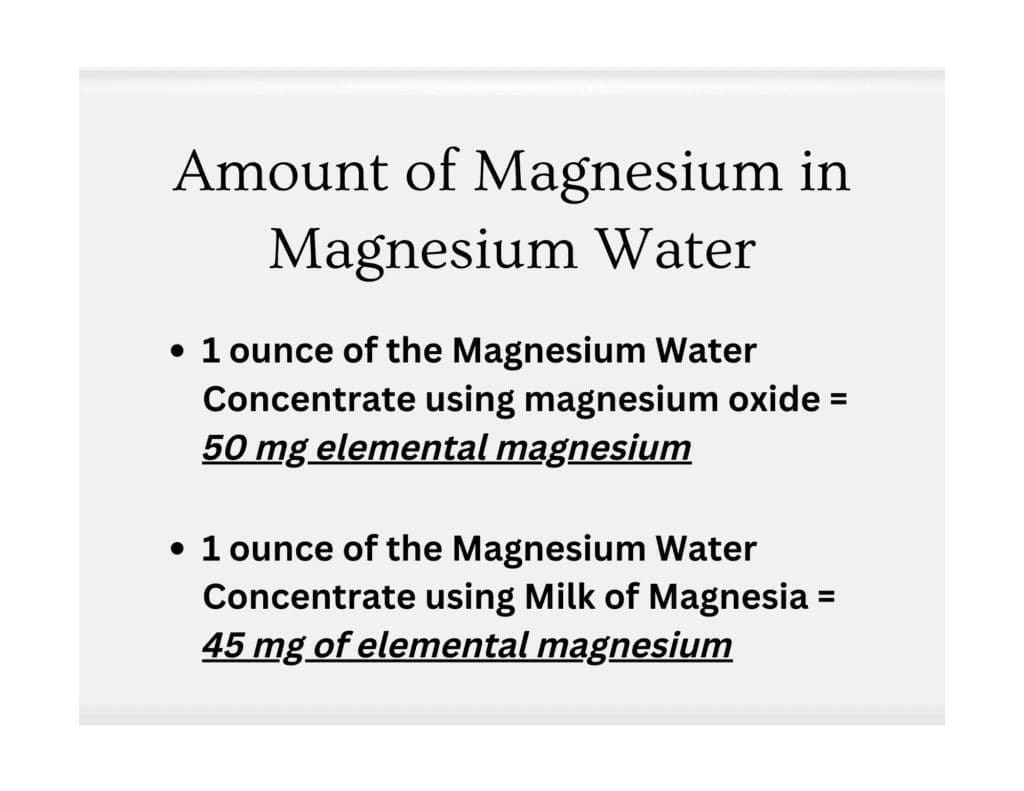
Magnesium expert and researcher, Mildred Seelig, MD, found in her research that 5 mg of magnesium per pound of body weight was an adequate amount of magnesium for most people to get per day. Some people, like athletes or those experiencing stress, might need more, however, 5 mg per pound of body weight is a good amount to attain on a daily basis.
Based on that recommendation, for someone who weighs 140 lbs, the daily magnesium intake goal would be 700 mg of bioavailable magnesium.
For kids, 1-2 ounces a day of magnesium water should be enough. Research how much magnesium your child needs each day based on their age and gender. They will experience loose stools if they consume too much magnesium.
Of course, always speak with your health practitioner if you or your family have any health issues or are taking medications before adding anything new.
Magnesium Water Recipe
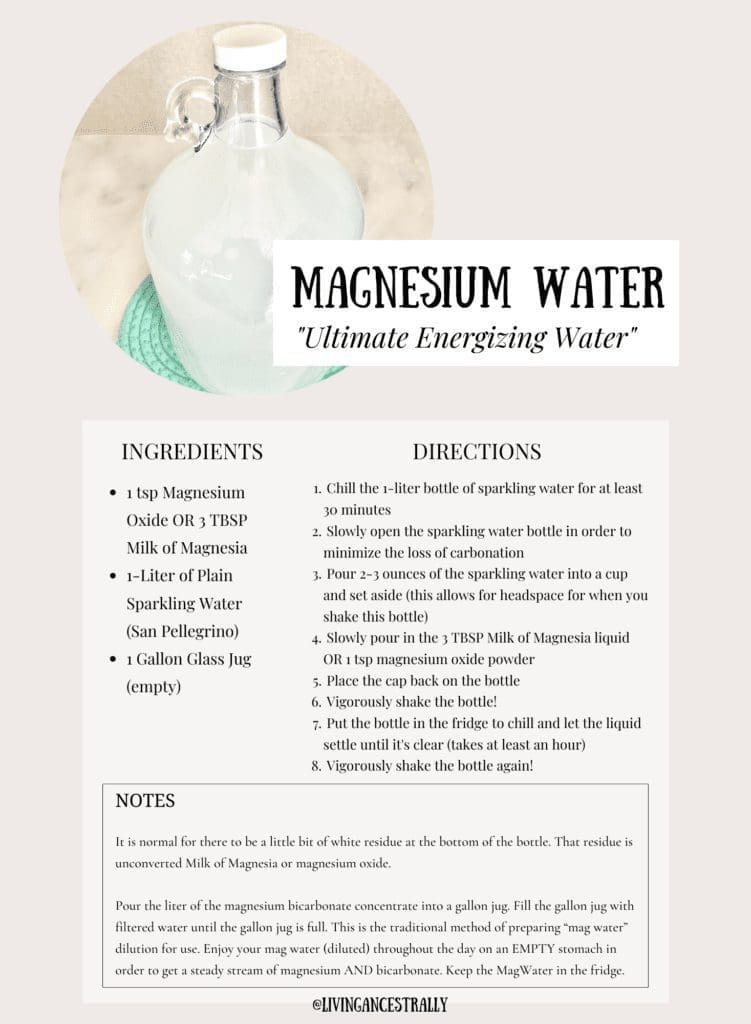
Tips for Drinking Magnesium Water
IMPORTANT NOTE: Drink magnesium bicarbonate on an empty stomach. Do not drink it at the same time that you eat or too close before or after you eat. Drink it 30 minutes to one hour before you eat or one hour after you eat. Due to the acid-lowering power of bicarbonate, the acid in your stomach will be lowered which is not something that you want around the time you eat. We want our stomach acid to be more acidic at that time so that it can break down the foods that we are eating.
As with anything new, GO SLOW. You might want to just try a little bit of magnesium bicarbonate water and slowly increase as you feel well. Notice how you feel when you first drink it as well as when you increase the amount that you drink until you are at the recommended amount of magnesium for your body weight
When we drink the magnesium bicarbonate AWAY from food, we will be lowering the acidity in our stomachs as well as the rest of our bodies.
Keep in mind that if our bodies are chronically acidic, that that will eventually lead to disease. That is one HUGE reason why it is important to be consuming bicarbonates.
Final Thoughts
Magnesium is an important mineral that we need in large amounts these days. Many people are overly stressed and have a lot of inflammation in their bodies. When we are stressed or have inflammation in our bodies, our bodies will use up magnesium at an extremely quick rate.
There is also much less magnesium in our water and food than there used to be. Therefore, for many people, it is important to supplement with bioavailable forms of magnesium like magnesium bicarbonate (“mag water”), magnesium chloride (magnesium lotion, spray, or flakes), and/or magnesium sulfate (Epsom salt).
There are also bioavailable forms of magnesium that can be taken orally. We covered a few oral forms of magnesium in our magnesium lotion article.
If you suffer from chronic fatigue, chronic exhaustion, adrenal fatigue, or any chronic disease, you’ll want to consider supplementing with magnesium bicarbonate. Any chronic condition is a sign that there is a lack of energy within your cells. A chronic condition or issue is a decent sign that you may be deficient in magnesium since magnesium is essential for energy metabolism. Supplementing your daily drinking water with magnesium bicarbonate water, along with other health changes, is a good place to start when your goal is to improve your health.
If you try magnesium water, then start slowly to see how you feel. Give it time to work! I’d suggest that you give it at least 2-4 weeks to notice a real change in how you feel.
Magnesium is not a magic bullet though, so if you aren’t making other changes in your health regimen, such as eating a whole food diet, then you may not notice much of a difference. We need to be consuming a wide array of whole food nutrients (not just magnesium). There needs to be a healthy balance between all the nutrients.
Please note that A Hair Mineral Analysis (HTMA) is not intended to diagnose, treat, cure, reverse, or prevent any disease. It is not intended to replace any other medical test(s) that may be prescribed by your medical doctor.
